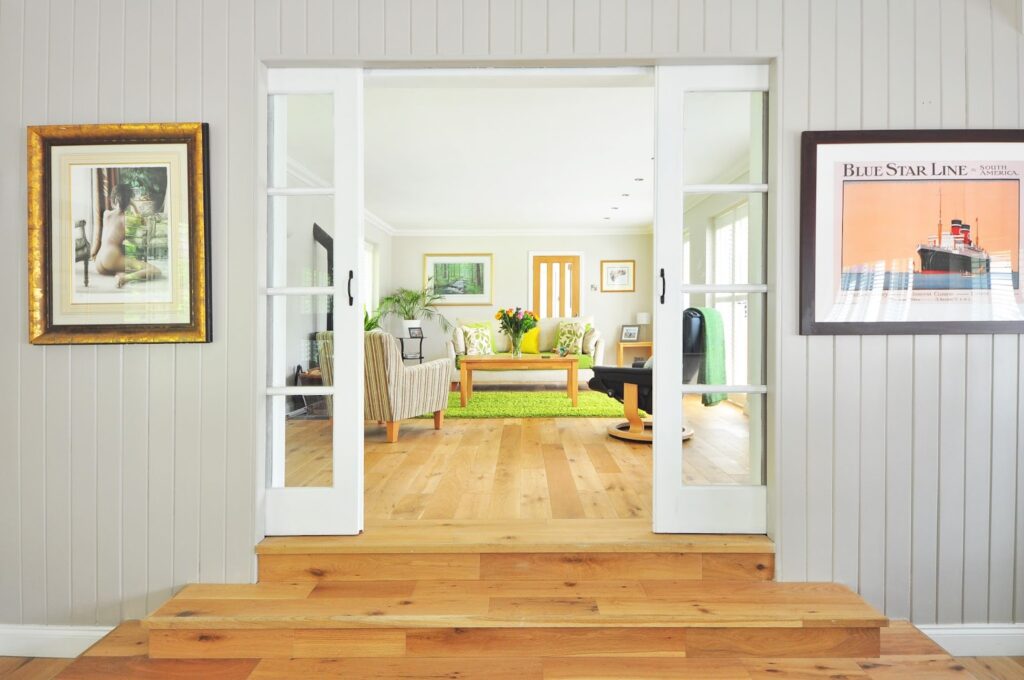Buying a HUD home can be an exciting opportunity for potential homeowners. HUD, or the U.S. Department of Housing and Urban Development, offers these homes at competitive prices, making them an attractive option for buyers on a budget. As an expert in real estate, I’ll guide you through the process and provide valuable insights to help you make an informed decision.
One of the key advantages of buying a HUD home is the potential for significant savings. These properties are typically sold at fair market value or below, allowing buyers to get more bang for their buck. Additionally, HUD homes often come with financing options that can make purchasing even more affordable.
However, it’s important to note that buying a HUD home does require some due diligence. These properties are sold “as-is,” which means you’ll need to thoroughly inspect them before making an offer. Understanding the guidelines and procedures set by HUD is crucial to ensure a smooth transaction.
In this article, I’ll walk you through everything you need to know about buying a HUD home – from finding available properties to navigating the bidding process. Whether you’re a first-time buyer or looking for an investment opportunity, this comprehensive guide will equip you with the knowledge and confidence needed to successfully purchase your dream home.
Sure, I’ll provide you with a section titled “What is a HUD Home?” for your article on buying HUD homes. Here’s the markdown:
What is a HUD Home?
HUD stands for the U.S. Department of Housing and Urban Development. A HUD home refers to a property that was originally purchased with an FHA-insured mortgage loan but has now been foreclosed upon and taken back by the government.
Here are some key points about HUD homes:
- Government Ownership: When a borrower defaults on an FHA loan, the lender initiates foreclosure proceedings, and if unsuccessful in selling the property at auction, the ownership transfers to HUD.
- Affordable Housing: One of the primary goals of HUD homes is to provide affordable housing options for individuals and families who may not qualify for conventional financing.
- Wide Availability: HUD homes can be found across various neighborhoods and cities throughout the United States, offering potential buyers opportunities in different locations.
- Price Range: These properties are often listed at below-market prices, making them attractive to first-time homebuyers or those looking for affordable investment opportunities.
- Condition Varies: Some HUD homes may require repairs or renovations as they are sold “as-is.” It’s important to thoroughly evaluate each property’s condition before making an offer.
- Exclusive Bidding Periods: Initially, only owner-occupant buyers have priority access to bid on HUD homes during an exclusive period before investors can participate in bidding.
- Real Estate Agents: Working with a qualified real estate agent experienced in dealing with HUD transactions can help navigate through the process smoothly.
- Financing Options: Various financing options are available when purchasing a HUD home, including FHA loans specifically designed for these types of properties.
Remember that each state may have specific guidelines and processes related to purchasing a HUD home, so it’s advisable to research local regulations or consult with a professional.
I hope this section provides a clear overview of what HUD homes are and helps your readers gain a better understanding of this unique housing option.
The Benefits of Buying a HUD Home
When it comes to purchasing a home, there are many options available in the market. One option that often goes overlooked is buying a HUD home. HUD, or the U.S. Department of Housing and Urban Development, offers a variety of benefits for those looking to buy their dream home.

Here are some key advantages of buying a HUD home:
- Affordability: One of the biggest advantages of purchasing a HUD home is its affordability. These homes are typically priced below market value, making them an attractive option for first-time buyers or those on a tight budget.
- Wide Selection: HUD homes come in various sizes and styles, catering to different preferences and needs. Whether you’re looking for a cozy bungalow or a spacious family house, there’s likely to be a HUD property that suits your requirements.
- Potential for Profit: Investing in real estate can be lucrative, and buying a HUD home presents an opportunity for potential profit. With some renovations and improvements, you can increase the value of the property over time.
- Financing Options: Financing your purchase is made easier when it comes to HUD homes. These properties are eligible for special financing programs like FHA loans, which offer lower down payment requirements and more flexible qualification criteria.
- Freebies: Yes, you read that right! When you buy a HUD home through certain programs, such as the Good Neighbor Next Door initiative, you may become eligible for additional perks such as substantial discounts or even grants.
- Clear Title: Purchasing a HUD home ensures that you receive clear title ownership without any liens or outstanding debts on the property.
- Opportunity for Community Revitalization: By investing in a distressed property through the HUD program, you contribute to community revitalization efforts by improving neighborhoods and increasing homeownership rates.
- Professional Guidance: Throughout the process of purchasing a HUD home, you’ll have the support and guidance of real estate professionals who specialize in these transactions. They can help you navigate the complexities involved and ensure a smoother buying experience.
In conclusion, buying a HUD home comes with numerous benefits, including affordability, wide selection, potential for profit, financing options, freebies through certain programs, clear title ownership, opportunity for community revitalization, and professional guidance. Consider exploring this option to find your ideal home at an affordable price.
Understanding the HUD Home Buying Process
Buying a HUD home can be an exciting opportunity for prospective homeowners. However, navigating the process may seem daunting at first. To help you understand what to expect, let’s dive into the key steps involved in purchasing a HUD home.

- Research and Find Available Properties: Start by exploring the list of available HUD homes in your desired area. You can visit the official HUD website or work with a real estate agent who specializes in HUD homes to identify suitable properties.
- Secure Financing: Before diving into the buying process, it’s crucial to determine your budget and secure financing options. Contact lenders to get pre-approved for a loan that aligns with your financial situation.
- Submit Your Bid: Once you’ve found a HUD home that meets your criteria, it’s time to submit your bid through an authorized real estate broker or agent. Make sure you meet all the requirements outlined by HUD and carefully follow their instructions for submitting bids.
- Wait for Decision: After submitting your bid, you’ll need to wait for a decision from HUD regarding its acceptance or rejection. This process may take some time, so patience is key during this stage.
- Negotiate if Necessary: If your initial bid is not accepted, there may still be opportunities to negotiate with HUD or revise your offer based on their feedback. Work closely with your real estate agent to navigate this negotiation process effectively.
- Complete Required Documentation: Once your bid is accepted by HUD, it’s important to complete all necessary documentation promptly and accurately. This includes signing purchase agreements and other relevant paperwork required by both HUD and your lender.
- Arrange Inspections: As part of the buying process, schedule inspections for any necessary assessments of the property’s condition such as structural inspections, termite inspections, etc.
- Close the Deal: After satisfying all contingencies and finalizing the necessary paperwork, you’ll be ready to close the deal. This involves signing all required documents, paying any remaining fees or costs, and officially becoming the owner of the HUD home.

